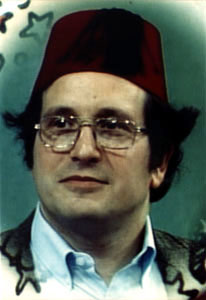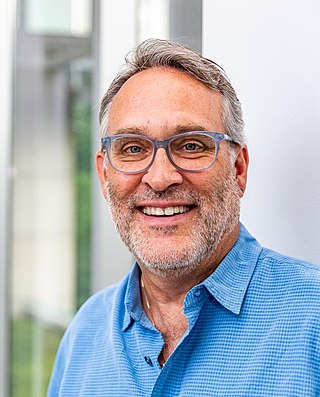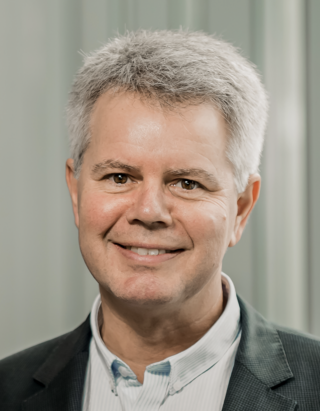
Gerald Jay Sussman is the Panasonic Professor of Electrical Engineering at the Massachusetts Institute of Technology (MIT). He has been involved in artificial intelligence (AI) research at MIT since 1964. His research has centered on understanding the problem-solving strategies used by scientists and engineers, with the goals of automating parts of the process and formalizing it to provide more effective methods of science and engineering education. Sussman has also worked in computer languages, in computer architecture, and in Very Large Scale Integration (VLSI) design.
Computational archaeology describes computer-based analytical methods for the study of long-term human behaviour and behavioural evolution. As with other sub-disciplines that have prefixed 'computational' to their name, the term is reserved for methods that could not realistically be performed without the aid of a computer.

In contemporary education, mathematics education—known in Europe as the didactics or pedagogy of mathematics—is the practice of teaching, learning, and carrying out scholarly research into the transfer of mathematical knowledge.
Neuroinformatics is the emergent field that combines informatics and neuroscience. Neuroinformatics is related with neuroscience data and information processing by artificial neural networks. There are three main directions where neuroinformatics has to be applied:
The terms design computing and other relevant terms including design and computation and computational design refer to the study and practice of design activities through the application and development of novel ideas and techniques in computing. One of the early groups to coin this term was the Key Centre of Design Computing and Cognition at the University of Sydney in Australia, which for more than fifty years pioneered the research, teaching, and consulting of design and computational technologies. This group organised the academic conference series "Artificial Intelligence in Design (AID)" published by Springer during that period. AID was later renamed "Design Computing and Cognition (DCC)" and is currently a leading biannual conference in the field. Other notable groups in this area are the Design and Computation group at Massachusetts Institute of Technology's School of Architecture + Planning and the Computational Design group at Georgia Tech.
Mitchell J. Nathan is an American academic, who is a Full Professor of Educational Psychology, Chair of the Learning Science program in the School of Education at the University of Wisconsin–Madison, and a researcher at the Wisconsin Center for Education Research.

Godfried Theodore Patrick Toussaint was a Canadian computer scientist, a professor of computer science, and the head of the Computer Science Program at New York University Abu Dhabi (NYUAD) in Abu Dhabi, United Arab Emirates. He is considered to be the father of computational geometry in Canada. He did research on various aspects of computational geometry, discrete geometry, and their applications: pattern recognition, motion planning, visualization, knot theory, linkage (mechanical) reconfiguration, the art gallery problem, polygon triangulation, the largest empty circle problem, unimodality, and others. Other interests included meander (art), compass and straightedge constructions, instance-based learning, music information retrieval, and computational music theory.
Per Arne Godejord is a Norwegian senior lecturer in social informatics and politician. His work as a lecturer was focused on didactics of social informatics, using the theme of sexual abuse of children on Internet as a way of teaching social informatics to computer science students and teacher education students. He is working in the field of e-didactics.
Computational thinking (CT) refers to the thought processes involved in formulating problems so their solutions can be represented as computational steps and algorithms. In education, CT is a set of problem-solving methods that involve expressing problems and their solutions in ways that a computer could also execute. It involves automation of processes, but also using computing to explore, analyze, and understand processes.
Challenge-based learning (CBL) is a framework for learning while solving real-world Challenges. The framework is collaborative and hands-on, asking all participants to identify Big Ideas, ask good questions, discover and solve Challenges, gain in-depth subject area knowledge, develop 21st-century skills, and share their thoughts with the world.
Informatics is the study of computational systems. According to the ACM Europe Council and Informatics Europe, informatics is synonymous with computer science and computing as a profession, in which the central notion is transformation of information. In some cases, the term "informatics" may also be used with different meanings, e.g. in the context of social computing, or in context of library science.
Constance Steinkuehler (Squire) is an American professor of Informatics at the University of California, Irvine. She previously taught at the University of Wisconsin-Madison before taking public service leave, from 2011-2012, to work as a Senior Policy Analyst in the Office of Science and Technology Policy (OSTP) at the White House Executive Office, where she advised on policy matters about video games and digital media. After returning to academics, she and her partner Dr. Kurt Squire moved to University of California, Irvine where they continue to co-direct the Games+Learning+Society (GLS) Center today.
Ioan Dzițac was a Romanian professor of mathematics and computer science. He obtained his B.S. and M.Sc. in Mathematics (1977) and PhD in Computer Science (2002) from Babeș-Bolyai University of Cluj-Napoca. He was a professor at the Aurel Vlaicu University of Arad and part of the leadership of Agora University in Oradea until his sudden death in 2021.
Sybilla Beckmann is a Josiah Meigs Distinguished Teaching Professor of Mathematics, Emeritus, at the University of Georgia and a recipient of the Association for Women in Mathematics Louise Hay Award.

Alan Yuille is a Bloomberg Distinguished Professor of Computational Cognitive Science with appointments in the departments of Cognitive Science and Computer Science at Johns Hopkins University. Yuille develops models of vision and cognition for computers, intended for creating artificial vision systems. He studied under Stephen Hawking at Cambridge University on a PhD in theoretical physics, which he completed in 1981.

Bruce Martin McLaren is an American researcher, scientist and author. He is a professor at Carnegie Mellon University in the Human-Computer Interaction Institute, head of the McLearn Lab, and a former President of the International Artificial Intelligence in Education Society (2017-2019).

Alexei L. Semenov is a Russian mathematician, educationalist, Academician of the Russian Academy of Sciences, Academician of the Russian Academy of Education, Head of the Department of Mathematical Logic and Theory of Algorithms, Lomonosov State University, Professor, and Dr. Sc.
The International Bebras Challenge on Informatics is an annual computer science competition for primary and secondary school students around the world. With 87 member countries and more than 2.5 million participating students in 2024, the competition is the largest computer science competition in the world. The Bebras competition adds new countries every year.

Danish computer scientist Michael Edelgaard Caspersen has spent his academic life furthering computer science education, at all levels. His research interests are computing education, programming didactics, programming methodology, and object-oriented programming. He is best known for his work on computing education research and development, particularly his work to promote informatics as a fundamental discipline for all.






